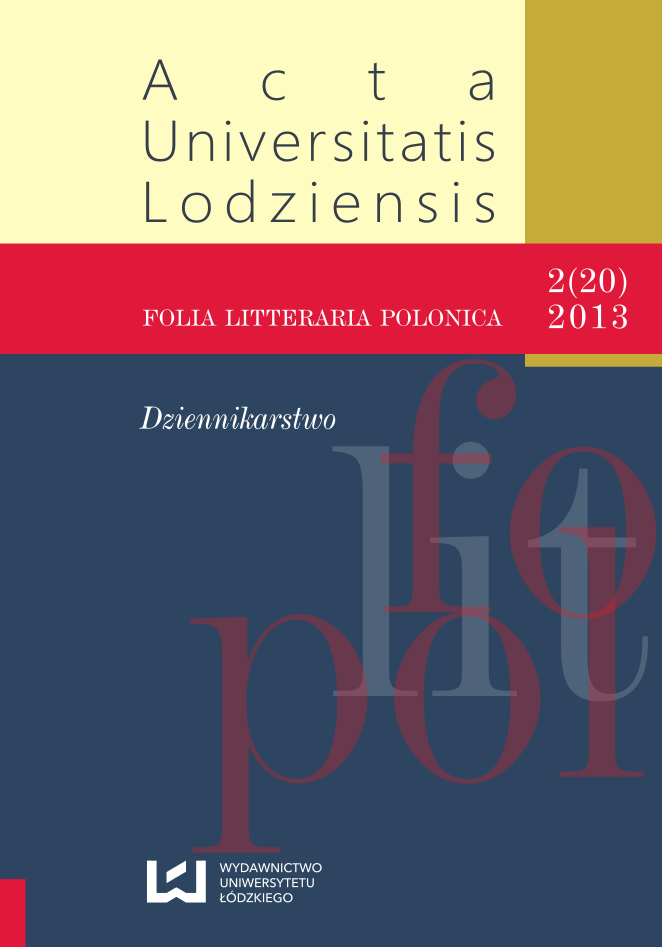Remarks on the communicativeness of journalist’s texts
DOI:
https://doi.org/10.18778/1505-9057.20.03Abstract
The article represents an attempt at identifying linguistic phenomena typically present in journalists’ texts concerning problems of law and aimed at non-professionals. Its objective is to evaluate the influence of these phenomena on the general comprehensibility of this kind of text.
For a text to be called communicative, it has to enable each of its recipients to fully comprehend it (general comprehension) in a way that is appropriate to the author’s intentions (adequate comprehension), and does not require great effort from the reader (easiness of comprehension).
In practice, factors determining a moderate grade of communicativeness are: use of complicated syntactic constructions, direct adoption of the content of legal regulations, and employment of stylistics characteristic of official texts. The consequence of shaking the balance between a publicistic and official style creates stylistic dissonance, which negatively affects the ease of comprehension.
Downloads
Downloads
Published
How to Cite
Issue
Section
License

This work is licensed under a Creative Commons Attribution-NonCommercial-NoDerivatives 4.0 International License.











